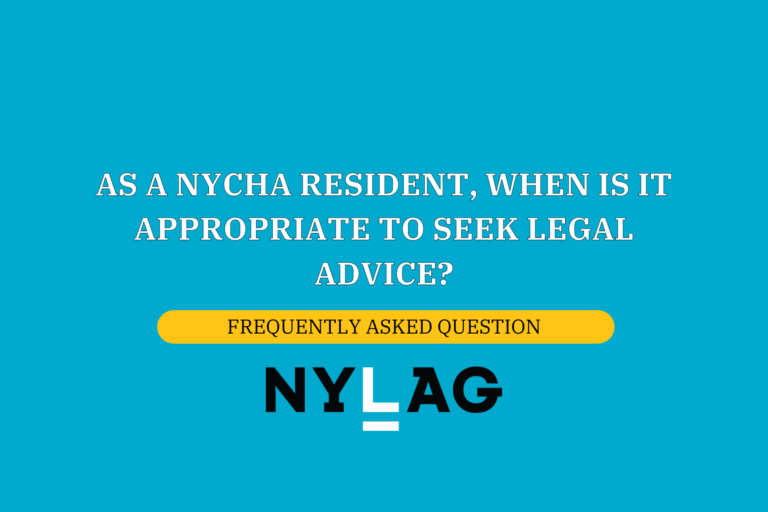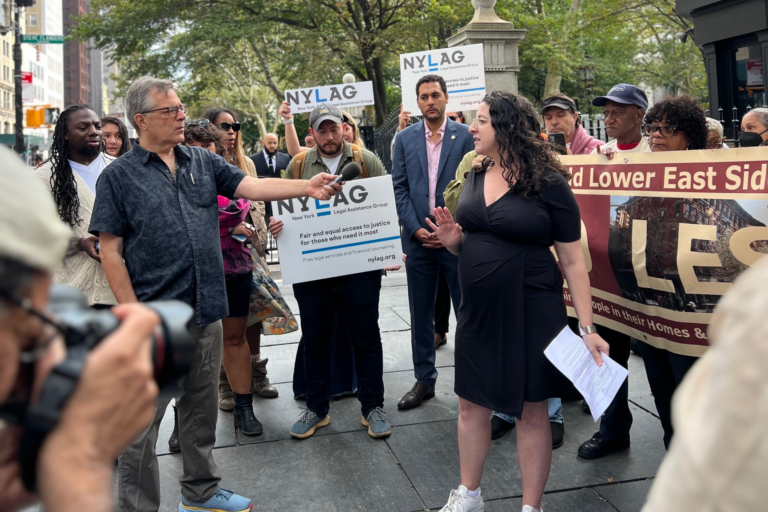By Jared Riser
Imagine losing your mother and your home in the same moment. This was the nightmare Shawn was facing when I met him. The day after his mother died suddenly of a heart attack, someone called him about the lease.
Shawn is a model tenant: he is quiet, clean, and pays his rent on time. However, his name is not on the lease for the federally-subsidized apartment that he shared with his family for years. He can be evicted unless he can prove that the apartment was his primary residence for at least two years, a tricky technical process that requires sorting through piles of documents.
A few years back, Shawn may have been in this alone. In July 2017, New York City enacted the Right to Counsel law to guarantee an attorney to low-income people facing evictions. NYLAG is a key player in the City’s roll out of the program, serving tenants all over the city.
Before, practically no tenants in housing court had attorneys; almost all landlords did.
It’s already working. From July 2017 to June 2018, tenants with representation increased 30 percent, while evictions by city marshals decreased 27 percent from 2013. Evictions fell below 20,000 for the first time in a decade! Lawyers keep people in their homes.
Luckily, Shawn does not need to navigate the complexities of housing court alone. We’re working together to prepare for his hearing next month. I will do everything I can to ensure that Shawn can stay in his family home.
Jared Riser is a fellow with NYLAG’s Tenants’ Rights Unit.






